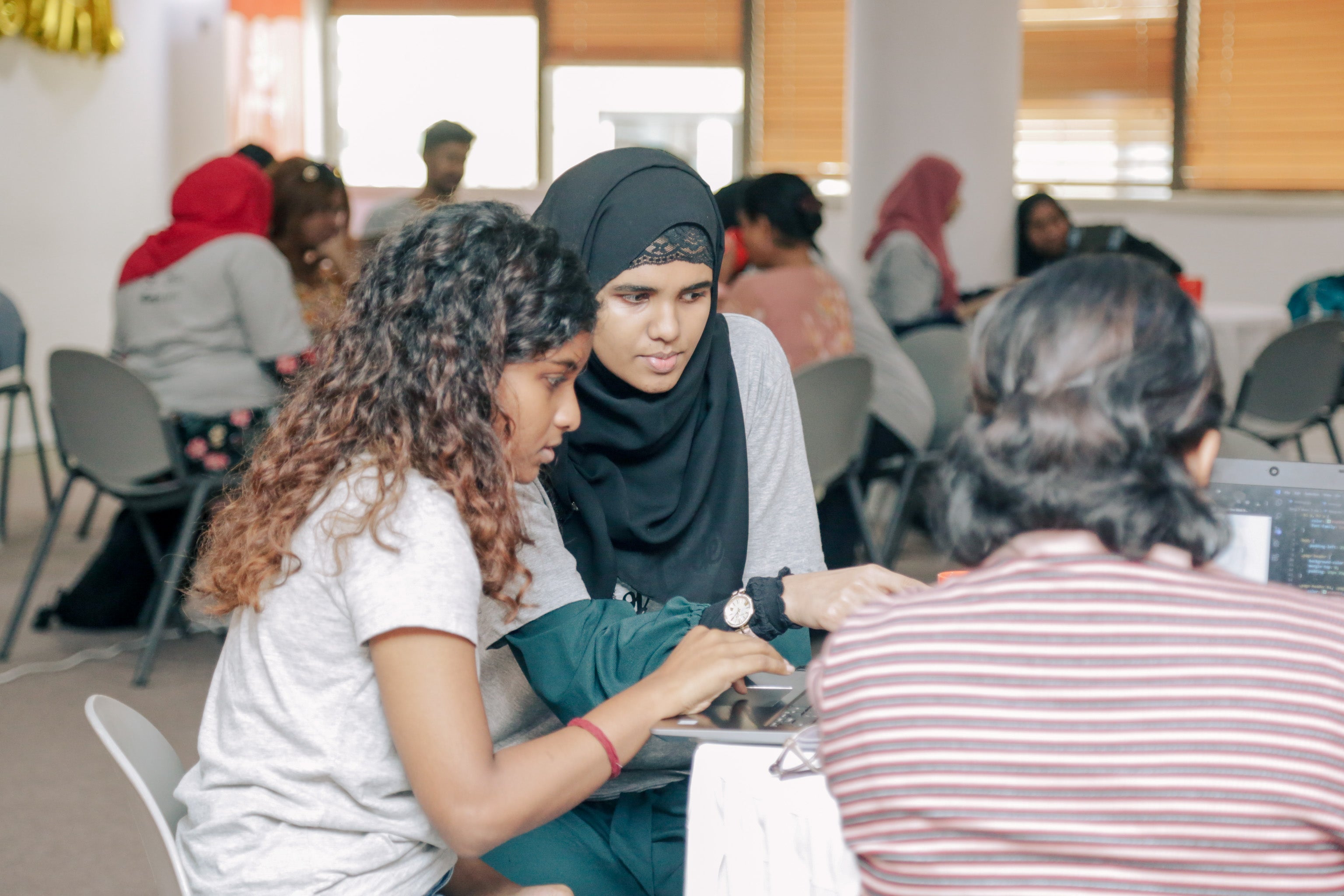 girls working on laptop
girls working on laptop
Famous for its white sand beaches across the 26 atolls and its spectacular marine life and resorts, Maldives has earned its moniker as the World Travel Awards’ leading destination. However, like many countries, Maldives faces its share of development challenges. The capital city of Malé is one of the most densely populated urban areas in the world, while the distance between the Maldives islands leaves families unable to access adequate health services and children on some of the outer islands disconnected from the educational opportunities. And the country’s high vulnerability to climate change calls for new and resilient pathways to growth that build on its traditional strengths of tourism and fisheries, while at the same time diversifying its economy.
Facing these challenges, Maldives could embrace digital technologies to decentralize and diversify its economy, while at the same time build on its role as a leader in the climate and decarbonization agenda.
It’s clear that Maldives can enable its already-existing pockets of innovation, improve its digital infrastructure, and invest in digital skills to position itself to go beyond its small size and remote location to become an active player in the global digital economy.
Maldivian entrepreneurs already represent the leading edge of an economically diversified future. They are innovating to address gaps in the tourism industry, help close learning divides, and create secure and inclusive opportunities for businesses to tap into the digital economy. Their success is proof that digital transformation can help create a diversified and robust services-led economy, where start-ups and the private sector play a larger role in the future. Most impressively, taking advantage of the global nature of the digital economy, some of these start-ups already service clients and consumers in markets well beyond Maldives and even South Asia. This is diversification in action, where the digital economy can help create new jobs and open untapped markets.
These promising developments are complemented by the government’s vision to decentralize service delivery equitably beyond Malé. For this, the public and private sectors would need to bridge gaps in internet availability between Malé and atolls, and to develop regulatory frameworks that support digitization in governance and businesses. At present, more than 60 percent of the population is connected to the internet, despite almost universal access to mobile phones. Still, there continue to be disparities across the atolls and their islands in access to affordable, secure, and reliable high-speed internet. This has limited the use of online learning, telemedicine, and digital processes in social protection programs, for example.
Efforts to improve digital service delivery, already reflected in national strategies, were boosted in the wake of the COVID-19 pandemic. The government quickly deployed digital platforms and services to track the spread of the virus, to deliver social assistance, and now to support its vaccination drive. The potential of digitization of public services, whether in healthcare, education, or other government services, is particularly high for Maldives given the need to improve delivery of services across the hundreds of islands and promote social inclusion and decentralization.
As the world attempts to decarbonize and adapt to climate change, Maldives faces existential threats. It is one of the most vulnerable countries to the adverse impacts of climate change. There is no time to spare. At COP26, Maldives was already serving as a messenger for the growing and immediate risks of climate change. As a global climate leader, Maldives can use digital technologies to play an important role in informing research and policy on climate change . Improved connectivity and robust data policies can support Maldives’ public institutions and its partners from civil society and academia to collect and process data through sensor networks, the Internet of Things, and 5G wireless networks. Digital technologies can also strengthen climate resilience by analyzing such data to help forecast and adapt to climate change and manage disaster risks, which is critical for the Maldives.
Digital technologies can support Maldives as it seeks to build back better from the COVID-19 pandemic․ The World Bank Group and the Maldives are partnering on this transformative digital development agenda, working closely with the private sector to strengthen institutions. Priorities include exploring investments to improve connectivity; establishing key institutional, legal, regulatory, and digital platforms; preparing the workforce for a globalized digital economy; expanding access to public services such as remote learning and telemedicine through digital channels; and driving technology innovation in Maldives.
Digital technologies provide Maldives a new set of tools to navigate local challenges and face global headwinds. By riding the wave of digital transformation to go global, improve resilience, and include more of its people in its progress, the Maldives is setting the course for a brighter future.





Join the Conversation